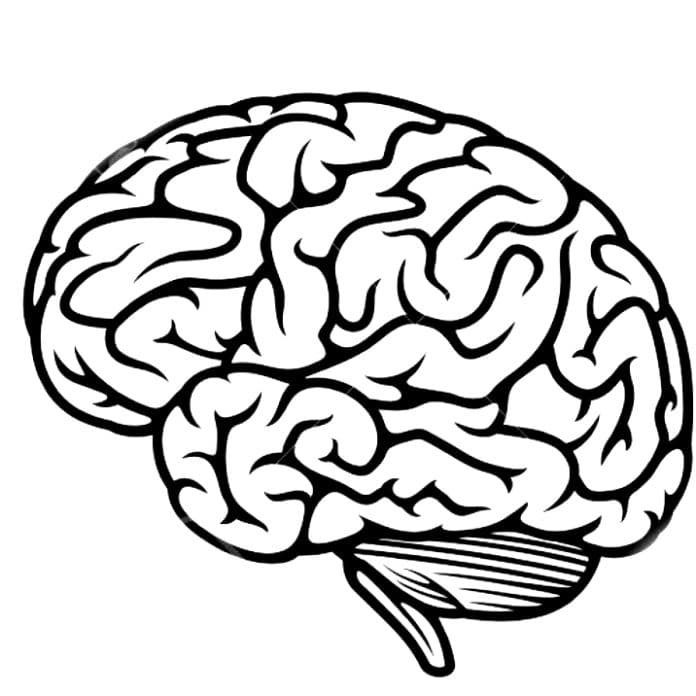by Sara Davenport
The latest research shows that the ways we live now can, over time, be toxic for the brain. Pollution, household chemicals, pesticides, and eating processed foods can play havoc; so too can a build-up of bacteria, viruses, and parasites and the cumulative effects of the electro-magnetic stress from computers, phones, and wifi that surround us. With concern of Alzheimer’s and other forms of brain disease being top of mind, and no pharmaceutical cure available for many of these disorders, what can we do in prevention to optimize our chances of keeping our brains in shape?
If your heart sinks into your boots at the thought of adding yet more ‘stuff’ to your already full day, don’t panic, this is not that difficult. You are probably already engaging in some of the most effective strategies for brain health. And reassuringly, neuroscience shows that brain cells can be grown at any stage of life. It’s never too late. Improving your neural circuits and boosting your brain can be very simple.
1. Getting Moving … Really Fast With HIIT Training
30 minutes of moderate exercise daily has been shown to increase the production of new synapses (the junction between two nerve cells) in your brain and studies have demonstrated that regular cardiovascular exercise that elevates your heart rate is one of the best ways to encourage neuroplasticity in the brain. Regular exercise — even half an hour three times a week — can increase its levels by 300%. People who exercise have been shown to have less deterioration in their brains than people who don’t. Walking is much better than sitting, but we can really boost the brain with some HIIT Training.
HIIT (High-Intensity Interval Training) stimulates BDNF (brain-derived neurotrophic factor), the ‘brain fertilizer’ protein that triggers new brain cell growth. BDNF increases blood flow and oxygen to the brain and boosts the mitochondria in your neurons, the tiny ‘batteries’ that power your brain.
2. Get Those Feet Hitting the Ground
A fascinating study from the New Mexico Highlands University found that ‘foot impact’, the striking of your foot on the ground, increases blood flow to the brain. So, although cycling or rowing can increase oxygen levels to your brain, walking and running (which has an even stronger foot strike) had additional benefits, building grey matter volume and strengthening overall cognitive skills. This may be why many creatives get their best ideas while walking.
3. Meditate Daily
Meditating lights up your frontal lobes — the area for problem-solving and impulse control — and develops the areas of the brain related to attention and sensory processing. Meditators have higher volumes of brain tissue, reduced brain inflammation, well-balanced neurotransmitters and less stress. Don’t know how to begin? There are a range of apps out there for you including Calm, Headspace and Insight Timer to help you get started.
4. Make Sleep a Priority
How many hours do you sleep each night? Too little or too much and your brain simply doesn’t work properly. In one study of more than 9,000 people, less than six hours sleep or more than eight hours sleep resulted in a reduction of memory function and decision-making ability. 7-7.5 hours seemed optimal in that study, although other studies indicate that 8 hours would be best. In any case, sleeping well is probably the most important thing you can do for your brain on a daily basis.
5. Brain-Boosting Aromatherapy? Rosemary!
Aromatherapy can be a powerful way to reboot your brain and improve brain function. Scents in specific essential oils stimulate parts of the brain that control memories and emotions. Northumbria University, UK carried out a study and found that merely being in a room diffused with the smell of rosemary boosted memory scores by 15%.
References:
Alzheimer’s: Alzheimer’s Disease International ‘Dementia Statistics’ alz.co.uk
Neuroscience: Dr Maura Boldrini et al from Columbia University NY – ‘Human Hippocampal Neurogenesis persists throughout Aging’ Cell Stem Cell Vol 22 Issue 4 p589-599 April 05 2018.
30 mins moderate exercise: Thomas AG, Dennis A, Bandettini PA, Johansen-Berg H, ‘The effects of aerobic activity on brain structure’, Front Psychol. 2012;3:86. Published 2012 Mar 23. doi:10.3389/fpsyg.2012.00086
BDNF: 16a Matthew M Robinson et al, ‘Enhanced protein translation underlies improved metabolic and physical adaptation to different exercise training modes in young and old humans’, Cell Metabolism, March 07 2017 Vol 25 Issue 3 pp.581-592
HIIT: Robinson M, Sreekuman Nair et al ‘Enhanced protein translation underlies improved metabolic and physical adaptations to different exercise training modes in young and old humans’, Cell Metabolism, 25, 581-592 March 7 2017
Running: Erickson KI et al, ‘Physical activity predicts gray matter volume in late adulthood: The Cardiovascular health study. Neurology, 2010, 75(16), 1415–1422
Meditation and Frontal Lobes: Dr Andrew B Newberg ‘Principles of Neurotheology’. Thomas Jefferson University USA
Sleep: Weizhen Xie et al ‘Poor Sleep quality and compromised Visual working Memory Capacity’ J Int Neuropsychol Society 2019 Jul:25(6):583-594
Rosemary and memory: ‘Herbs that can boost your mood and memory’. Northumbria University Dept of Psychology; British Psychological Society, Nottingham 26-28 April 2016
‘Reboot Your Brain’ by Sara Davenport is published 7 February 2020. Available on Amazon.
Sara also writes the health blog, ReBootHealth.co.uk, which looks at all aspects of holistic health and healing, bringing you a regular dose of DIY get-well advice. Check out the range of top tips, recipes and ideas on how to live better; find out about health experts who might just change your life. She is also the founder of the UK’s second-largest breast cancer charity, Breast Cancer Haven.


